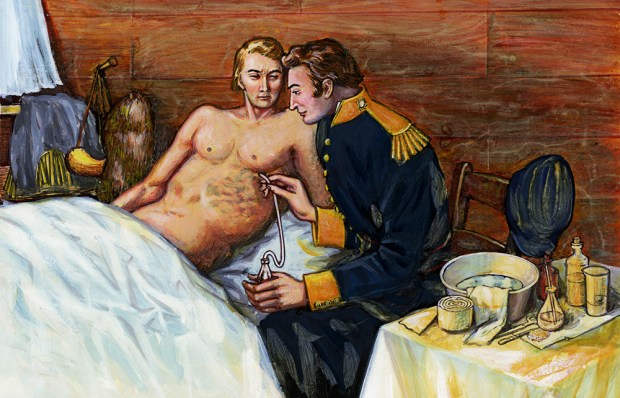‘The drawer beside Roberta’s bed contained remnants of other people’s fun’: so begins ‘Mathematics’, one of 11 stories in this outstanding collection by the Belfast author Wendy Erskine. The opening is Erskine in miniature: the wry, unostentatious prose; the sad interiors with their charged objects (‘a small mother-of-pearl box inlaid with gold, a lipstick that was a stripe of fuchsia, a lucky charm in the shape of a dollar sign’); a character’s casual curiosity about the intimate affairs of others.
Dance Move might also have been titled Other People’s Fun. As in Erskine’s first short story collection Sweet Home (2018), which portrayed ordinary east Belfast residents in beauty parlours, catalogue shops and homes of varying degrees of sweetness, people are drifting, staring longingly at others as they contemplate experiences they’ve never had and never will. In ‘His Mother’, the bereaved Sonya scours Belfast’s motorways with a paint scraper, cloth and soapy water to take down the ‘missing’ posters of her dead son. In ‘Mathematics’, Roberta, a neglected teen-ager with cognitive difficulties, is employed as a cleaner for shady short-term rental properties. ‘Cell’ follows Caro, who is re-adapting to Belfast after misspent years in a London revolutionary collective; and ‘Nostalgie’ introduces us to Drew Lord Haig, a well-off IT programmer whose memories of failed pop stardom are rekindled when a paramilitary battalion invites him to perform. These are circumscribed, abbreviated lives, lived in a minor key.
Many situations are painful: a fatal diagnosis; paralysing or disfiguring accidents; a suicide; murders, both recent and historic; the discovery of an abandoned child. But the stories are never sentimental, nor do they strain credulity. What grounds them is Erskine’s distinctive style: she is a great noticer, with an eye for microscopic detail, and pays close attention to the syntax and cadences of ordinary conversation. Omitting speech marks, she mingles thought and dialogue, roving freely between her characters’ consciousnesses. She is also extremely funny.
In 1962, Frank O’Connor, the master of the Irish short story, published The Lonely Voice, his seminal study of the form. To him, what distinguished the short story was its preoccupation with what he called ‘the submerged population’: ‘It may be Gogol’s officials, Turgenev’s serfs, Maupassant’s prostitutes, Chekhov’s doctors and teachers, Sherwood Anderson’s provincials, always dreaming of escape.’ Erskine’s Belfast outsiders are in the best of the short story tradition: lonely voices indeed.
Got something to add? Join the discussion and comment below.
Get 10 issues for just $10
Subscribe to The Spectator Australia today for the next 10 magazine issues, plus full online access, for just $10.
You might disagree with half of it, but you’ll enjoy reading all of it. Try your first month for free, then just $2 a week for the remainder of your first year.














Comments
Don't miss out
Join the conversation with other Spectator Australia readers. Subscribe to leave a comment.
SUBSCRIBEAlready a subscriber? Log in